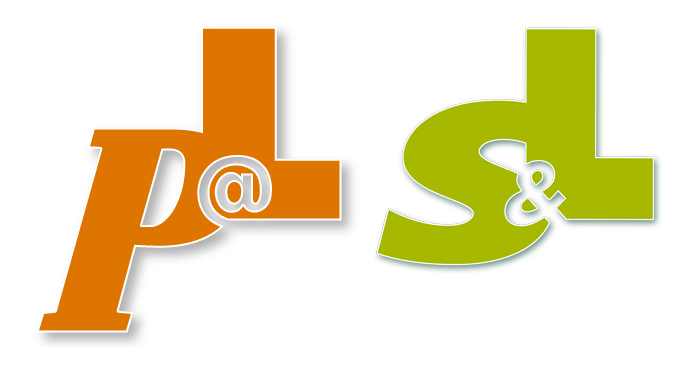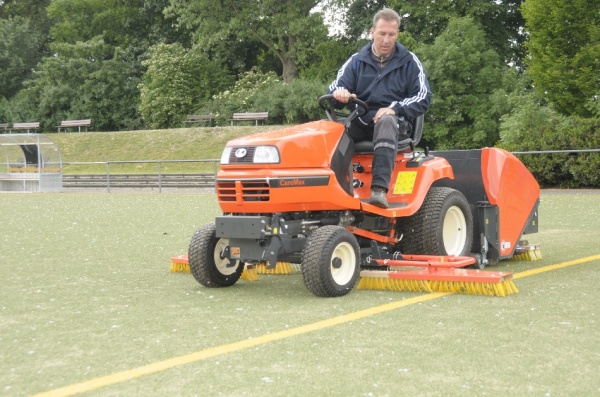Inspect First - Then Refurbish
In recent years, the number of artificial pitches used to practise sports has continued to increase, largely replacing old surfaces such as ...


YOUR FORUM FOR PLAY, SPORTS UND LEISURE AREAS

In many sports facilities, maintenance work is focussed on turf pitches. In addition, there are usually tennis courts and increasingly more often, synthetic turf pitches to be cared for. More demanding requirements from users as well as continually higher cost pressure makes special, vocational training for head groundkeepers, greenkeepers and their employees necessary, especially where
grass sports fields are involved. All employees working in the field of sports field maintenance must be able to use the know-how in an optimal way in order to achieve best possible quality. Accordingly, in the following, possibilities for qualification are given.
Qualification offer
Qualified groundkeeper
Maintenance workers have the possibility of gaining qualifications for basic knowledge in the training course "Football groundsman", which was drawn up in cooperation with the organisation AG Rasen of the German football association (DFB). Successful completion of this course is rewarded with the certificate, "Qualified Groundsman forLeisure Sport Facilities". The course is made up of three one-week courses – Basic course, Advanced course 1 and Advanced course 2.
The basic course provides a complete overview of standard construction methods for different kinds of sports surfaces with focus on general maintenance systems of grass pitches. Most important are the insights and basic knowledge provided with regard to sensible and cost-saving measures for regeneration, repair and successful, sustainable care. Theoretical and practical relationships are explained according to the latest findings by experienced and established expert lecturers.
In Advanced course 1, this expert knowledge is expanded on with special focus topics of ground and vegetation (ground physical and chemical ground properties, agrostology (study of grass) and evaluation of the state of grass pitches and includes important aspects of the organisation of practical care.
Advanced course 2 is focussed on technical equipment, maintenance, care, operation and adjustment of machinery and equipment as well as sprinkler irrigation. In addition, their correlation
to preparation for competition events and the corresponding repair work necessary for maintain playing function on grass pitches are explained.
After successful completion of all three courses, participants obtain a certificate entitling them to the title of "Qualified Groundsman for Leisure Sport Facilities" issued by the DFB and the Deula.
Certified Greenkeeper / Agronomist / Outdoor sports facilities
For employees responsible for maintenance and their deputies, vocational knowledge and professional qualifications can be obtained with state-recognised further education graduation and the professional title Certified Greenkeeper / Agronomist / Outdoor sports facilities.
This is based on the examination guidelines of the ministry of agriculture of the German state of North Rhine Westphalia (NRW) dated April 6, 2006. The courses are carried out by the DEULA Rheinland training centre located at Kempen.
The vocational courses are made up of three course blocks (A, B, C), each lasting three weeks.
Course A provides a complete overview of care systems with focus on grass pitches and transfer of the necessary basic knowledge for sustainable ground care and maintenance (regeneration, repair, etc.), whereby the correlation between theoretical and practical knowledge is gained according to quality goals.
Focus topics include basics knowledge of vegetation (botany and physiology, agrostology, soil science) and care including basic, maintenance and regeneration work for grass sport pitches.
Special attention is paid to technical equipment, especially professional grass care including the choice, maintenance, operation and adjustment of machinery and equipment as well as irrigation technology. The course is rounded off by an introduction in communication and team work.
In course B, participants expand on their basic knowledge to include important topics with regard to recognition of vegetation technology maintenance and construction quality. In particular, more information with regard to agrostology, ground construction systems and construction mistakes and plant nutrition is provided. Course B also includes an introduction into turf disease and qualifications in plant protection / pest control expertise for use of pesticides as per the guidelines for integrated pest control. The course is completed by an introduction to basic methods of business administration.
Course C deals with specialisation in and gaining specific knowledge about maintenance and care as well as construction of outdoor sports facilities / stadium pitches and also includes care of clay, synthetic and artificial turf surfaces.
One week of course C is a week of practical work with inspections and lessons at different sports facilities with grass pitches and other sports surfaces (stadium, arena, community sports fields, field and track athletics stadiums – evaluation of grass pitches, analysis of condition, measuring criteria, care requirements, machinery and equipment infrastructure and their use) as well as the evaluation of sod pitches.
The second part of course C provides participants with information and knowledge enabling them to assume management tasks, economic and legal aspects with regard to work organisation, company management as well as analysis of sports operations and event management. Focus topics are evaluation of condition, documentation and evaluation of different kinds of sports pitch surfaces as well as knowledge about functionality of for irrigation and drainage systems as well as pitch heating. In this regard, recognition of regeneration, repair and renovation possibilities are given increased importance. Topics on functioning and safety of children's playground and sport equipment for different kinds of sport and basic knowledge of event management are provided as preparation for the organisation of competitions. Calculation of machinery and care costs for different kinds of sports surfaces are also explained in depth.
Practical training
Between the courses A, B and C, a total of 7 practical training events take place to ensure understanding of the theory work.
Examination and graduation
The further education course is completed with a written and practical exam taken by experts from the ministry of agriculture of the German region North Rhine Westphalia as per § 54 BBiG for certification to agronomist for outdoor sports facilities / certified greenkeeper.
This examination is open to all those with a successfully completed apprenticeship as agriculturalist, gardener, forester or agri-serviceman followed by three years of practical work in this field or in the care and maintenance of sports fields. Candidates with several years of proven work in care of sports facilities who have the corresponding knowledge, capabilities and expertise may also be accepted.
Photos: Dr. Wolfgang Prämaßing
More information about the
courses can be obtained from:
DEULA Rheinland GmbH Training Centre
Krefelder Weg 41
D-47906 Kempen, Germany
Phone +49 2152-205770
Fax +49 2152-205799
www.deula-fussballrasen.de
deula-kempen@deula.de